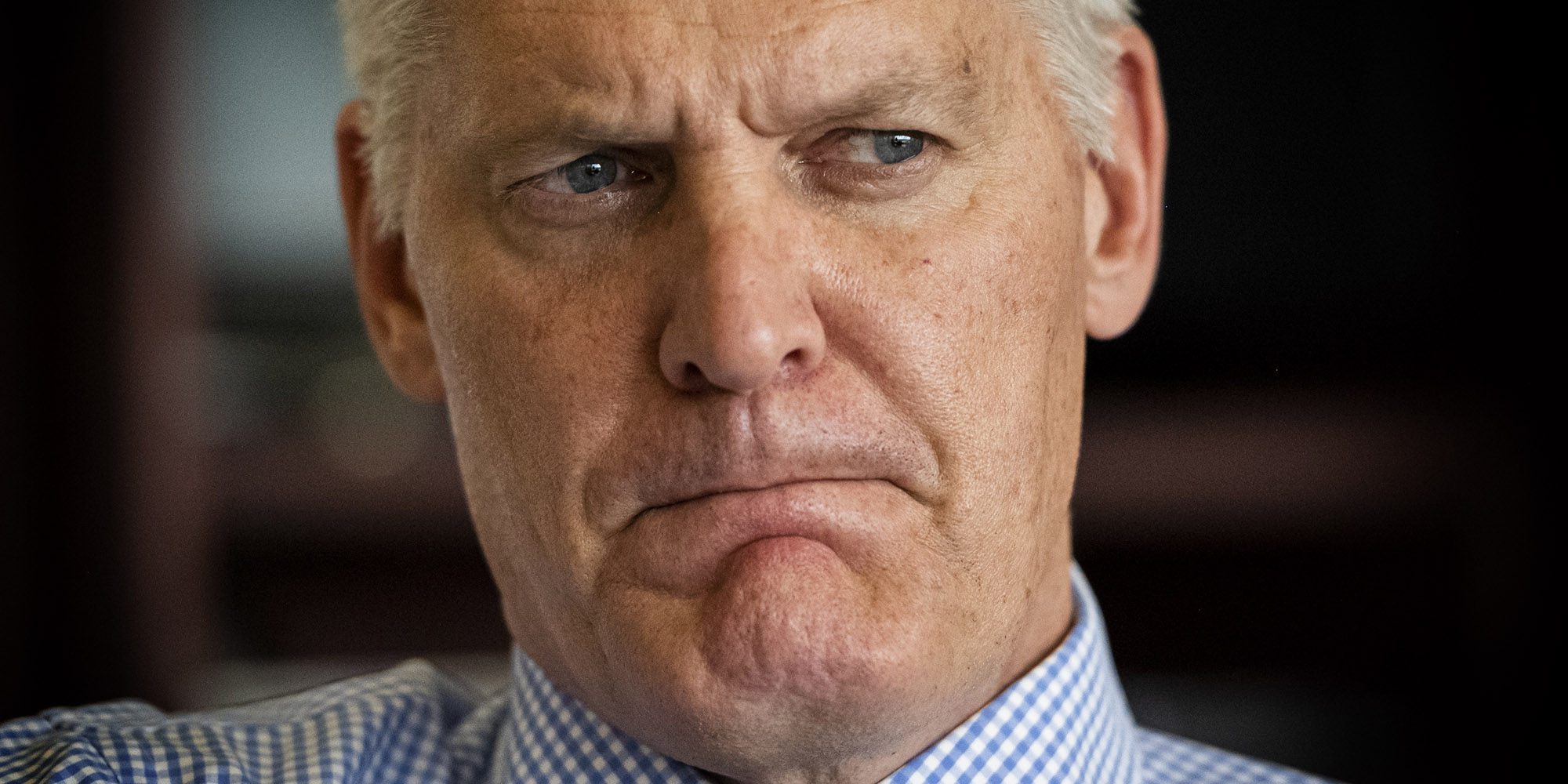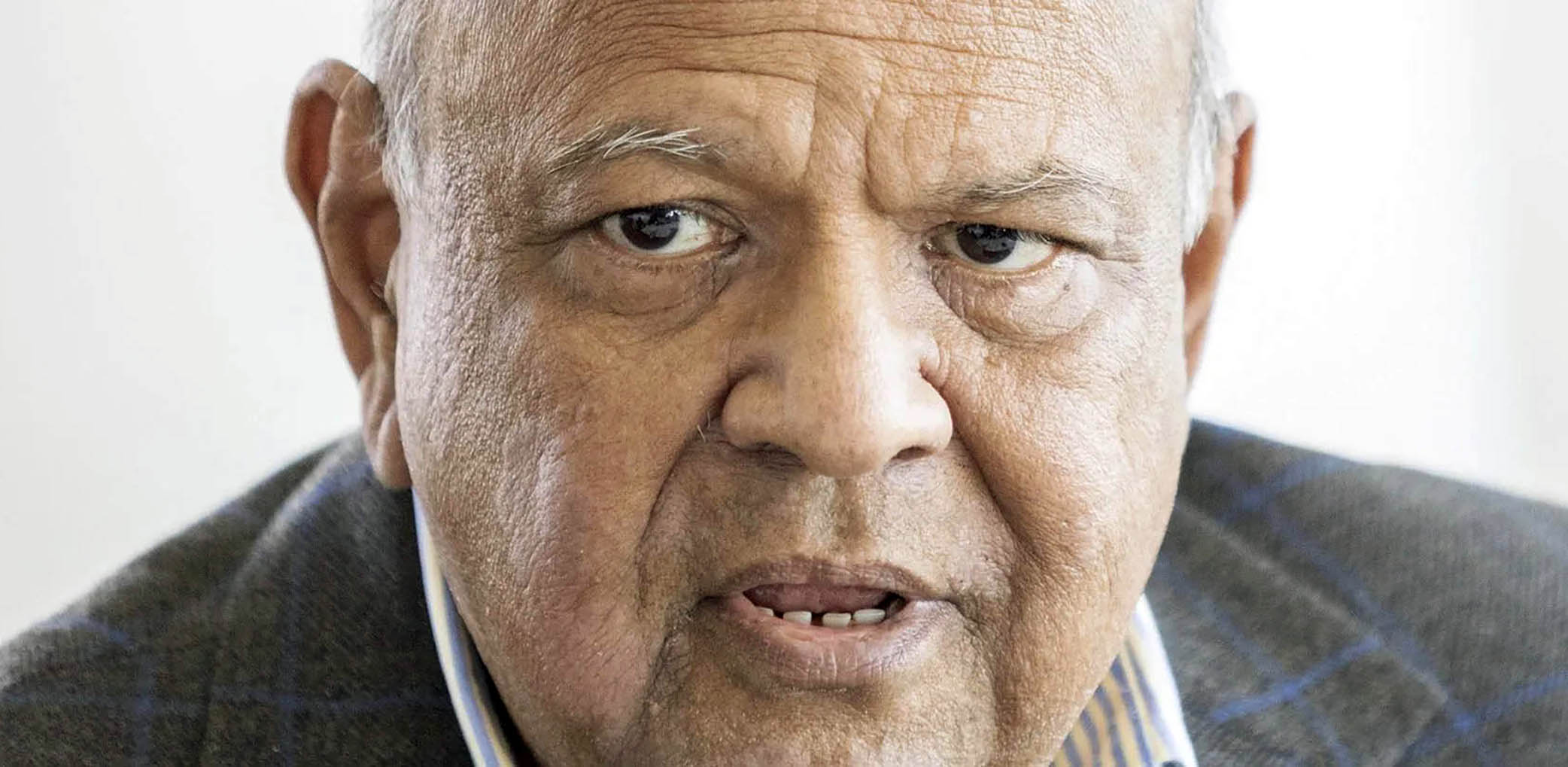“Fraud, corruption, sabotage and other criminal conduct have taken root within Eskom and, unless we take decisive action to eradicate this type of conduct, it will continue to fester and see the downfall of Eskom with catastrophic impacts to South Africa.”
This was a warning from Eskom’s own Annual report (up to March 2022), released on 23 December 2022.
In a media briefing about the report on the same day, Eskom’s outgoing CEO André de Ruyter — who exits at the end of March – said regarding these governance issues, “we really have to as a nation confront this scourge that is going to result in our country becoming, in my respectful opinion, ungovernable.”
 Andre de Ruyter. (Photo: Gallo Images / Rapport / Deon Raath)
Andre de Ruyter. (Photo: Gallo Images / Rapport / Deon Raath)
Eskom power stations have seen coal procurement fraud and theft, sabotage and corruption and are in “the grips of criminal syndicates” according to de Ruyter, so addressing this “scourge” is on Eskom’s agenda for the new year.
In November 2022, Eskom reported multiple arrests linked to sabotage, coal theft and coal fraud at Camden Power Station.
A contractor intentionally removed the oil drain plug from the bearing which caused oil burners to trip repeatedly, in an effort for the perpetrator to get more maintenance and repair jobs. Truck drivers were also arrested for being in possession of substandard coal on its way to Eskom and in possession of stolen coal.
Minister of Public Enterprises, Pravin Gordhan, said in response to parliamentary questions from EFF’s Phiwaba Madokwe on 6 December 2022 that a coal fraud case cost Eskom approximately R35-million.
 Public Enterprises Minister Pravin Gordhan. (Photo: Guillem Sartorio / Bloomberg via Getty Images)
Public Enterprises Minister Pravin Gordhan. (Photo: Guillem Sartorio / Bloomberg via Getty Images)
The case saw Megra Transport CC and an Eskom employee convicted for coal procurement fraud, as the company contracted to transport coal for Eskom generated fake invoices and were paid for transporting coal they never delivered.
Gordhan said that several coal theft and fraud cases opened by Eskom are with the South African Police Services (SAPS) for investigation (the most recent being theft of coal and fraud at Kendal and Camden power stations) and at that time (December 2022) there were seven transport companies that are under investigation by the Hawks for coal procurement fraud and theft against Eskom.
Daily Maverick previously reported that de Ruyter said Eskom and the country could attribute one or two stages of rolling blackouts to sabotage.
“This is a pattern. We found it at other power stations as well. At Tutuka, for example, people deliberately break equipment because that results in a maintenance callout, which puts money into the pockets of the maintenance contractors,” de Ruyter said in an interview with SAfm.
“Of course, there are other factors in place where no doubt [these criminals] want to exacerbate load shedding, and we suspect to put more pressure on players including myself and the management teams.”
So how are they going to deal with this festering wound that contributes to continuous rolling blackouts?
Due to the breakdown of two generating units and the delay in returning to service three generating units from planned maintenance, Stage 3 loadshedding will be implemented today at 16:00 until further notice. Eskom will issue another update as soon as it becomes necessary.
— Eskom Hld SOC Ltd (@Eskom_SA) January 4, 2023
How Eskom is dealing with security threats
In mid-December 2022, Minister of Defence Thandi Modise deployed the South African National Defence Force (SANDF) at four Eskom power stations, in response to “the growing threat of sabotage, theft, vandalism and corruption at Eskom power stations,” according to Presidency spokesperson Vincent Magwenya.
The military presence at Majuba, Camden, Grootvlei and Tutuka power stations was taken at the request of Gordhan and President Cyril Ramaphosa.
Read more in Daily Maverick: “SANDF to guard four Eskom power plants under threat of sabotage and vandalism”
De Ruyter said at the media briefing in late December that they welcome the recent steps by the hawks and the deployment of SANDF to secure the assets, adding, “my only regret is that it’s taken so long for our security forces and agencies to start engaging with a matter of national security.”
In a written parliamentary response to the DA’s Farhat Essack questions about how Eskom will be addressing sabotage, as seen in Camden Power Station, Gordhan said that Eskom is making use of various technological and human security measures, and overt and covert detection and monitoring systems in order to monitor and secure the plants.
Gordhan said details of security measures were deemed sensitive and thus limited for disclosure.
And in terms of re-evaluating and monitoring contracts that are already active, Gordan said that Eskom Security screens all active contracts, “including employees of contractors employed at Eskom sites and companies against whom investigations (criminal, civil or disciplinary) have been launched, conducted/completed, or are in progress.”
Gordhan said that Eskom Security are, “compiling a database of companies and persons to enable the listing/red-flagging of individuals and entities as part of due-diligence investigations.”
Visit Daily Maverick's home page for more news, analysis and investigations
Explaining, “The flagging instruments are in the form of contract management in which contract performance is monitored; the Fraud Hotline where stakeholders can report suspicious contracts; internal and external audit findings; as well as complaints against the Procurement & Supply Chain Management system.”
In terms of new contracts, Gordhan said that Eskom is enforcing controls, and where there is irregular expenditure evident, contracts are reviewed for elements of fraud and corruption.
The State Security Agency is also engaged in assisting Eskom in screening of contractors and suppliers to Eskom, added Gordhan.
Eskom to ‘play the role of policeman’
Eskom’s Annual Results report (year ending March 2022) released in December stated that Eskom has implemented a crime-risk management unit with the support of the law firm ENSafrica, particularly focused on combating the likes of bribery and corruption, financial crime, physical assets crime, cybercrime and anti-money laundering.
“While crime remains such a significant part of our landscape, we will have to play the role of policeman because of failures in our law enforcement to bring these perpetrators to book, and to particularly conduct appropriate intelligence programmes to prevent crime from happening in the first instance,” said de Ruyter.
Eskom is changing its current ineffective investigative mechanism to address fraud and corruption from one that uses multiple investigative functions that act in silos and are reactionary, to a single investigative unit, “to achieve maximum synergies between our forensic and our security teams,” said de Ruyter.
 The South African Defence Force has been ordered to guard Eskom power stations amid the rolling blackout crisis. (Photo: Gallo Images / Brenton Geach)
The South African Defence Force has been ordered to guard Eskom power stations amid the rolling blackout crisis. (Photo: Gallo Images / Brenton Geach)
Best case scenario – things stay the same
Even if Eskom is able to address the security threats that de Ruyter says contribute to rolling blackouts, energy analyst Chris Yelland says that the best case scenario is that the system stabilises — which means things stay the same — i.e. the same levels of rolling blackouts to come.
Therefore my view is that an aspiration by the DPE minister or Eskom chairman for the average EAF in 2023 of to reach 65%, or even "significantly higher than 60%", is unrealistic.
— Chris Yelland (@chrisyelland) December 30, 2022
Read in Daily Maverick: “De Ruyter’s resignation from Eskom a ‘major blow’ for power utility’s reform, warn business and investment experts”
In the media briefing for Eskom’s annual results, Eskom chairman Mpho Makwana said that they are aspiring for the EAF (Energy Availability Factor) to rise to 65%. While Eskom’s Chief Operating Officer, Jan Oberholzer (set to retire in April) said this would be a tough call, he said the expected EAF for 2023 would be significantly higher than 60%.
Yelland said this view is “unrealistic.”
Energy analyst Clyde Mallinson explained to Daily Maverick that Energy Availability just means, “if it’s not in for planned maintenance, or it’s not broken, then it’s available, but it doesn’t necessarily mean that it’s used.”
Yelland told Daily Maverick that Week 51 of 2022 set a new record low of an EAF of 50.43%, with our average EAF for the year at about 58%. Yelland explained that as the EAF has been decreasing a few per cent every year, the best we could hope for is to stop the decline and stabilize — as you have to stabilise first before we can see an upward trend.
“I believe that the best that one can hope for this year is to bottom out [stabilise at an EAF of 58%],” said Yelland.
“That’s the best case — if you do everything right and all goes well.” DM




 The South African Defence Force has been ordered to guard Eskom power stations amid the rolling blackout crisis. (Photo: Gallo Images / Brenton Geach)
The South African Defence Force has been ordered to guard Eskom power stations amid the rolling blackout crisis. (Photo: Gallo Images / Brenton Geach) 